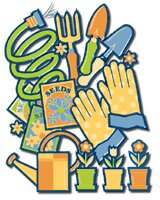 |
EVALUATION & RECOGNITIONHelping next year’s committee
|
|---|
 |
EVALUATION & RECOGNITIONHelping next year’s committee
|
|---|
Evaluation consists of two equally important parts.
You must first gather as much information about all aspects of your week as possible. In order to do this task completely, make sure that you have a method for participant comments after each event. Compile the number of participants who amended each event and the total number who attended during the week, then add comments that were made to staff and presenters during and after events.
Make sure that you do a comprehensive written evaluation.
The second part is to make sure that each committee leaves a complete report including all people who were contacted for information and help and a list of people who actually came through and their assigned duties. This is especially important so that next year’s committee has a good base to begin from.
A brief questionnaire completed by attendees at the end of each program, is a relatively easy way to gather useful information. Brainstomm with your chapter members concerning what information would be useful to gather. Another source of information is other campus offices such as residence life and the counseling center. Ask them what infommation would be helpful for them to know. Also, they might have a useful perspective on what questions should be asked. Some evaluation data will be collected during the campaign week, and other data cannot be collected until after the completion of the campaign. Be sure you know what data falls into each of these categories.
Below are some sample instruments and questions you may use for evaluation purposes. Remember some events may have to be evaluated simply by attendance numbers. Keep in mind the two purposes of the evaluation: first, to see how you did keeping within the budget, getting numbers of students out, and measuring the impact of your programs; second, put together a complete file of information which tracks your committee’s efforts from beginning to end for future planning committees.
Program Name _________________________________________ Date ____________
What was the most useful part of this program? _____________________________________________________
What was the least useful part of this program? _____________________________________________________
What feedback do you have for the presenter(s)? ____________________________________________________
What other information on alcohol or drug topics would you be interested in learning about? ______________________________________________________
OVERALL:
To what extent were you satisfied with this program? (Please circle one)
Not at All A little Somewhat It was great
To what extent did you examine your own personal use of alcohol as a result of this program? (Please circle one)
Not at All A little Somewhat A great deal
Thank you for taking the time to complete and return this questionnaire.
1. Were you aware of alcohol awareness week at (name of school) during October (or appropriate month)?
yes __________ no __________
2. Did you attend or participate in any alcohol awareness week programs or activities?
yes __________ no __________
If yes, what were they? ____________________________________________________
3. Did you discuss with any students (or faculty or staff) alcohol issues during or after NCAAW?
yes __________ no __________
4. To what extent did you examine your own personal use of alcohol during alcohol awareness week? (Please circle one)
Not at All A little Somewhat A great deal
In addition to having an evaluation meeting, find ways to celebrate your success!Bring treats to your last meeting. Put up a display bulletin board with the committee members and event pictures and congratulate them on making a difference. Take out an ad in the campus paper. Ask your College President to write a letter of recognition to the members. |
|---|
If you and your NCAAW or NCHWW committees went to all of the trouble and work to develop a comprehensive set of activities for National Collegiate Alcohol Awareness Week and National Collegiate Health and Wellness Week, you deserve a chance for some national recognition.
Each year the Task Force sponsors an awards program for those schools participating in NCAAW and NCHWW as part of their year round alcohol and drug abuse prevention efforts. This competition includes not only national recognition, but cash awards as well. The best part of the deal is that if you follow the steps in this website, much of your work is already done.
As a follow-up to your evaluation efforts, create a written report that outlines all activities and documents that were accomplished throughout the academic year. Compiled in a three-ring notebook form, this will be an extremely valuable tool for planning NCAAW and NCHWW the following year. Be sure to include samples of artwork, promotional materials, committee minutes and evaluation summaries. Develop sections that cover the major steps. This way not only have you created a permanent record of your efforts, but you can easily show off your efforts to administrators, potential funders and as a recruitment tool for future committee members.
The next step is to take this information and apply for recognition.
Institutions will be judged in four major areas:
Foundations for Year-long Programming - 5 points
Variety and Creativity of Activities - 5 points
Breadth of Participation - 5 points
Evaluation - 5 points
National Collegiate Alcohol Awareness Week
c/o Dr. Herbert Songer
Fort Hays State University
208 Sheridan Hall
Hays, Kansas 67601
Decisions will be made and winners notified by July 1, 1998.